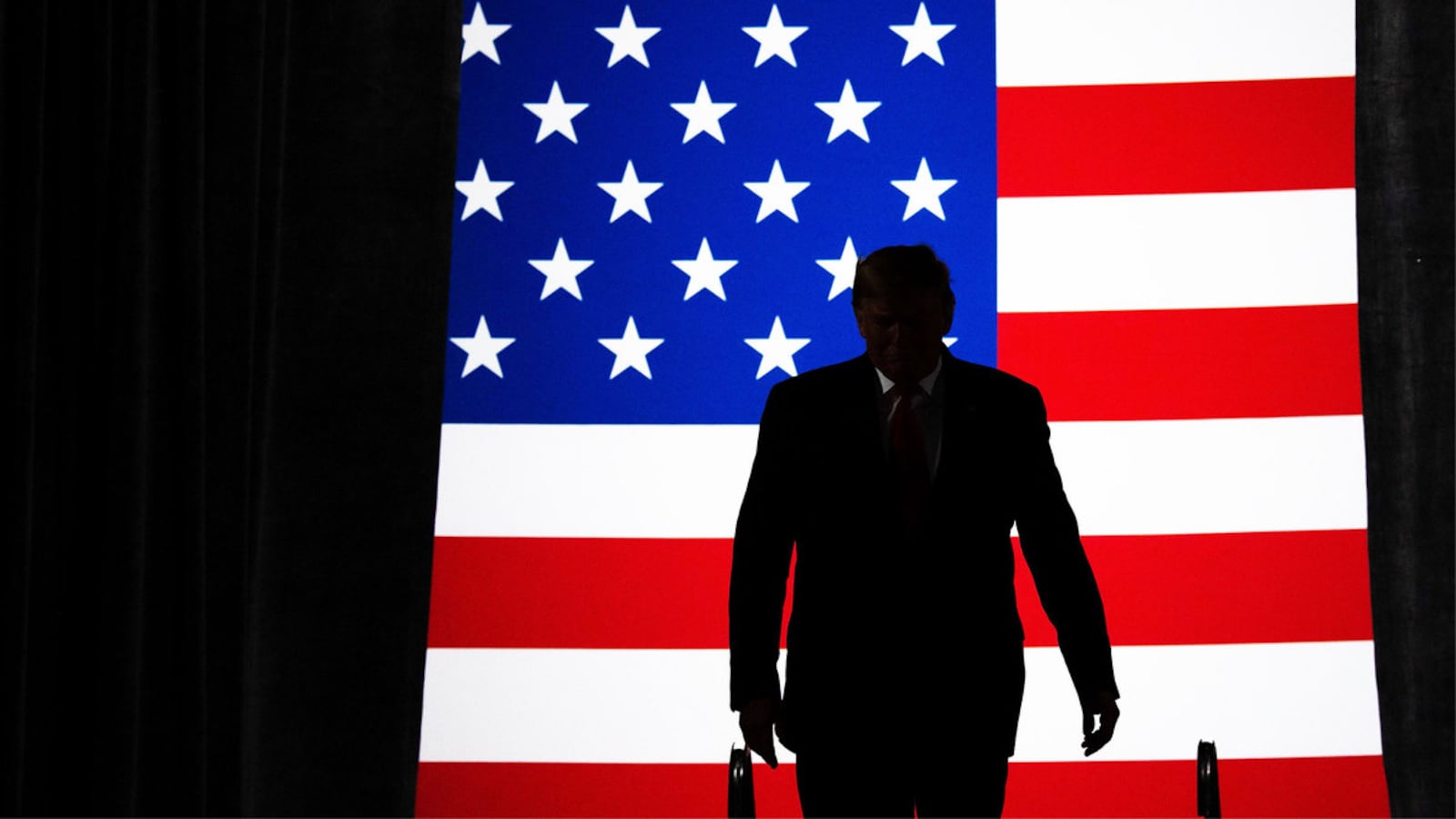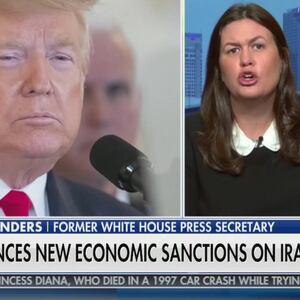Is it just me, or is some of the rhetoric being bandied about by Republicans reminiscent of the run-up to the Iraq war? You know, the post 9/11 era, when Americans who dared question even the strategy and tactics of war could be told, “You’re either with us, or against us...”
We see it when Lindsey Graham says that Senators Mike Lee and Rand Paul are “empowering the enemy.” It’s evident when Nikki Haley suggests that Democrats are "mourning" the death of Qassem Soleimani—and when Rep. Doug Collins says Dems are “in love with terrorists.” And we see it when Liz Cheney says the War Powers Resolution dishonors every member of America’s armed forces. We see it when Lou Dobbs compares Mike Lee to Benedict Arnold. It’s almost like when Bob Novak and Pat Buchanan were labeled "unpatriotic conservatives.”
During the run-up to the war in Iraq, Republicans would have been better served by inviting more, not less, skepticism. Indeed, we would all have benefited from a little more scrutiny over questions like... I don't know... whether Iraq really had weapons of mass destruction.
While we all might concede that Saddam Hussein was a very bad hombre, taking a bit more time to consider the second- or third-order effects of toppling a strongman might have been not only not unpatriotic but utterly responsible. Furthermore, a robust debate over the wisdom of removing the Ba'ath Party's influence in Iraq might have saved countless lives (and a lot of trouble for George W. Bush).
Likewise, it’s appropriate to question whether Soleimani’s existence posed an imminent threat or whether Congress should have at least been consulted. Further, it’s legitimate to question the wisdom and prudence of killing him, even as almost everyone (yes, even Democrats) concedes he was a bad guy. We still don’t know the long-term ramifications. Reports that a Ukrainian jet taking off in Tehran might have been downed by an Iranian missile adds even more volatility. We find ourselves in a precarious situation where some rando Iranian lieutenant could accidentally start WWIII.
Democracy is messy. Debate and discussion slow things down. An imperial presidency that can unilaterally order strikes is quicker (which is one of the reasons Sarah Sanders cites when she says she can’t think of anything “dumber” than allowing Congress to weigh in). But that’s not the system the Founders intended.
In the long-run, real national security hawks—people who genuinely believe that a robust foreign policy is best for America—would be better served by remembering the Elvis song “Fools Rush In”.
Again, these are lessons we should have learned. The irony, of course, is that after initially supporting the Iraq war, Donald Trump has been highly critical of George W. Bush, going so far as to suggest congressional Democrats should have impeached him over the Iraq War.
It’s also ironic that the same intelligence community that facilitated the killing of Soleimani (and the same intel community that allegedly said doing so was urgently needed to prevent future attacks) has been the focus of so much Trump condemnation. As Tucker Carlson observed recently, “Just the other day, you remember, our intel agencies were considered politically tainted and suspect.”
In some cases, Trump even cited their faulty Iraq war intel to discredit them. When a late 2016 CIA assessment suggested Russia tried to help Trump win the election, his transition team issued a statement saying, “These are the same people that said Saddam Hussein had weapons of mass destruction.”
In fairness, Trump—lacking the moral, if utopian, delusions of George W. Bush—has no grand designs on exporting democracy or nation-building.
Still, it is fascinating to watch how effortlessly and enthusiastically so many Republicans (save for people like Mike Lee, Rand Paul, and Carlson) are eager to embrace the zeitgeist, and have essentially returned to their 2003-era talking points.
They were, of course, more than willing to make excuses for all of Trump’s indiscretions, including his “America First” isolationist phase when he promised to end “forever wars” and retreat from the Mideast.
But you can tell their heart is much, much more into cheering him on when it comes to unleashing fire and fury. . .
There’s no telling where this will go. Trump’s foreign policy is incoherent and inconsistent, so he could revert. But there is a possibility that we are entering a new election-year phase. One thing we know about Trump is that he is often guilty of projection. When he predicted that Barack Obama would start a war with Iran in order to help insure his own re-election, was Trump really telling us that is what he would have done if he were in Obama’s shoes?
Whatever happens, we must robustly protect the right to dissent and encourage skepticism. These are healthy American values. Unfortunately, Trump’s defenders have been handed a new cudgel—the ability to suggest that anyone who questions his military decisions is an enemy of the people.
If you think the "Dear Leader" mentality was creepy when it was merely advancing a self-serving cult of personality, just imagine how dangerous it can be when employed by a commander in chief seeking re-election as a "war-time president."







